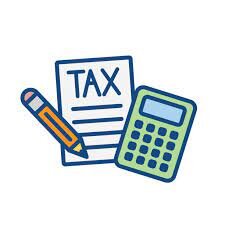
What is included in Property Taxes?
Property taxes are fees imposed by local governments on property owners. These taxes typically fund the community’s essential public services and infrastructure projects. Click (Here) to continue with the complete article.
Introduction
Selling a home involves various financial considerations, and one crucial aspect is property taxes. Many homeowners wonder how property taxes are handled once they sell their homes. This article will delve into what happens to property taxes after a home sale. Whether you’re a seller or a prospective buyer, understanding the implications of property taxes is essential. Read on to gain clarity on this topic.
What Are Property Taxes?
Property taxes are levies imposed by local governments on real estate properties. The funds collected through property taxes support public services such as schools, infrastructure, emergency services, and local government operations. The amount of property tax you pay is typically based on the assessed value of your property and the local tax rates.
Property Taxes Before Selling Your Home
Before selling your home, you must pay property taxes until closing. Here’s what you need to know about property taxes before the sale:
- Property Tax Payment Schedule: Property taxes are usually paid annually or semi-annually. The payment schedule may vary depending on your location. Contact your local tax authority or check your property tax statement for specific due dates.
- Prorated Property Taxes: Property taxes are usually prorated between the buyer and the seller at closing. This means that the buyer will reimburse the seller for the portion of property taxes that cover the period after the sale is finalized.
- Escrow Accounts: If you have an escrow account with your mortgage lender, they may have been collecting funds from you throughout the year to cover property taxes. The funds in the escrow account will be used to pay the property taxes when due.
Property Taxes After Selling Your Home
Once you’ve sold your home, your responsibility for property taxes may change. Here’s what typically happens after the sale:
- Final Property Tax Bill: After the sale, you may receive a final property tax bill from your local tax authority. This bill will cover the portion of the year up until the date of the sale.
- Transfer of Tax Responsibility: The buyer assumes responsibility for property taxes from the date of the sale. They will receive future property tax bills and be responsible for making the payments.
- Notifying the Tax Authority: It’s essential to inform your local tax authority about the sale of your property. This ensures that future property tax bills are sent to the correct owner.
- Escrow Accounts for Buyers: If the buyer has a mortgage and an escrow account, their mortgage lender will likely collect funds to cover future property tax payments. The lender will disburse these funds when the property taxes are due.
Potential Issues and Considerations
While property taxes are typically handled smoothly after selling a home, there are a few potential issues and considerations to keep in mind:
- Proration Accuracy: Ensure that the property taxes are accurately prorated at closing. Any errors could result in discrepancies and must be addressed with the buyer or their representative.
- Tax Assessment Changes: Property tax assessments can change over time due to various factors, including reassessment by the local tax authority. These changes can impact the property tax the buyer owes in subsequent years.
- Tax Appeals: If you believe your property tax assessment is incorrect, you may have the option to appeal the assessment. However, this process typically must be initiated before the sale is finalized.
- Tax Implications of Moving: If you plan to purchase a new home after selling your current one, be aware that property tax rates and assessments may vary between locations. Research and consider the potential property tax implications when choosing your new property.

Conclusion
Understanding how property taxes are handled after selling your home is essential to ensure a smooth transition and avoid unforeseen issues. As a seller, be prepared to prorate property taxes and settle any outstanding amounts until the closing date. The buyer will assume responsibility for future property taxes, and it’s important to notify the tax authority of the ownership transfer. By being aware of these processes and potential considerations, you can confidently navigate the property tax aspect of selling your home.

Local Honest Homebuyer
And here is an offer that is hard to refuse; reach out to us, and we’ll help you. We are local real estate buyers, and we can answer your questions. Check out our Google reviews, LOCAL HONEST HOMEBUYER GOOGLE REVIEWS
